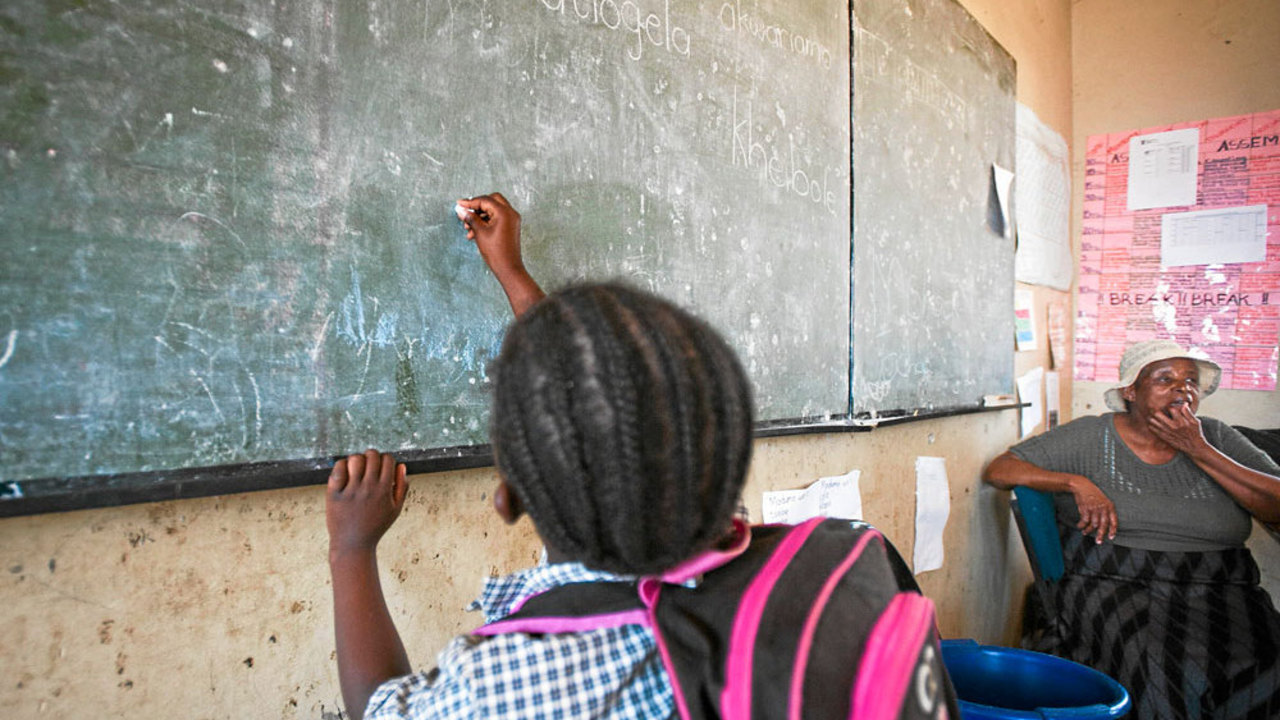Pascalinah Kabi
THE Education and Training Ministry says the new primary school curriculum has gone a long way in ensuring that the local education system is inclusive and accessible to all learners.
Piloted in 70 primary schools in 2012, the ministry said the new curriculum now gives learners with disabilities the same shot at a better education as their able-bodied counterparts.
The government is in the process of phasing out the primary school leaving examinations which were written at the end of grade 7. The examinations were used to determine whether or not a learner would be admitted for secondary education.
The First, Second and Third Class grading system has been replaced with Basic, Proficient and Advanced rankings as learners automatically qualify for a spot in secondary schools.
Speaking at a press conference in Maseru on Monday, the Chief Education Officer responsible for Curriculum and Assessment, ‘Mabakubung Seutloali, said the curriculum had given learners living with disability a shot at a better future.
Ms Seutloali said in the past learners living with disabilities were denied a brighter future by the primary school leaving examinations which determined that a learner could only proceed to grade 8 if they had passed grade 7.
“The learners were not judged fairly but this new curriculum does not summarise the learners’ abilities but states the learner’s competency in each learning area,” Ms Seutloali said.
“This means that the assessment report will say such a learner has scored Basic in this learning area, Proficient in this learning area and Advanced in another area,” Ms Seutloali said.
“The rankings will not be used to disadvantage learners from being admitted into post-primary schools in their area catchment but used as a basis to see each learner’s competency.”
For his part, Education Minister, Mokhele Moletsane, said they have been phasing in the new curriculum since 2012 with the intention of addressing the relevance and quality of basic education from primary to secondary level.
He said that change had brought major paradigm shifts in the assessment of learners and their transition from grade 7 to grade 8.
“The primary schooling learning examinations phasing-out is being implemented country-wide in this year, 2017, when all learners will no longer be sitting for an examination.
“What the 2017 grade 7 pupils will be writing this week are only assessment tests in some of the skills required by the new curriculum. These tests are not to be used for selection into grade 8,” Mr Moletsane said.
He said the Education Act of 2010 gave him the responsibility to determine the admission policy for all public schools in Lesotho and that his ministry had the responsibility to ensure that places were available for learners to continue their education in the secondary schools closest to their homes.
Mr Moletsane said the ministry had the added responsibility of ensuring that education was inclusive by seeing to it that learners with special educational needs and other vulnerable children were not excluded from admission into grade 8.
He said while parents had the right to choose schools of their preference for their children, the ministry was convinced that learners who attended schools closest to their homes were most likely to remain in school and reduce the costs to their parents and guardians.
“Schools that have boarding facilities are encouraged to prioritise learners with special needs, vulnerable children (such as orphans), and those learners from areas where there are no post-primary schools within walking distance of their homes,” Mr Moletsane said.
Although the private schools used the national curriculum determined by the Ministry of Education, Mr Moletsane said the law only gave him powers to determine the admission policy for public schools.

